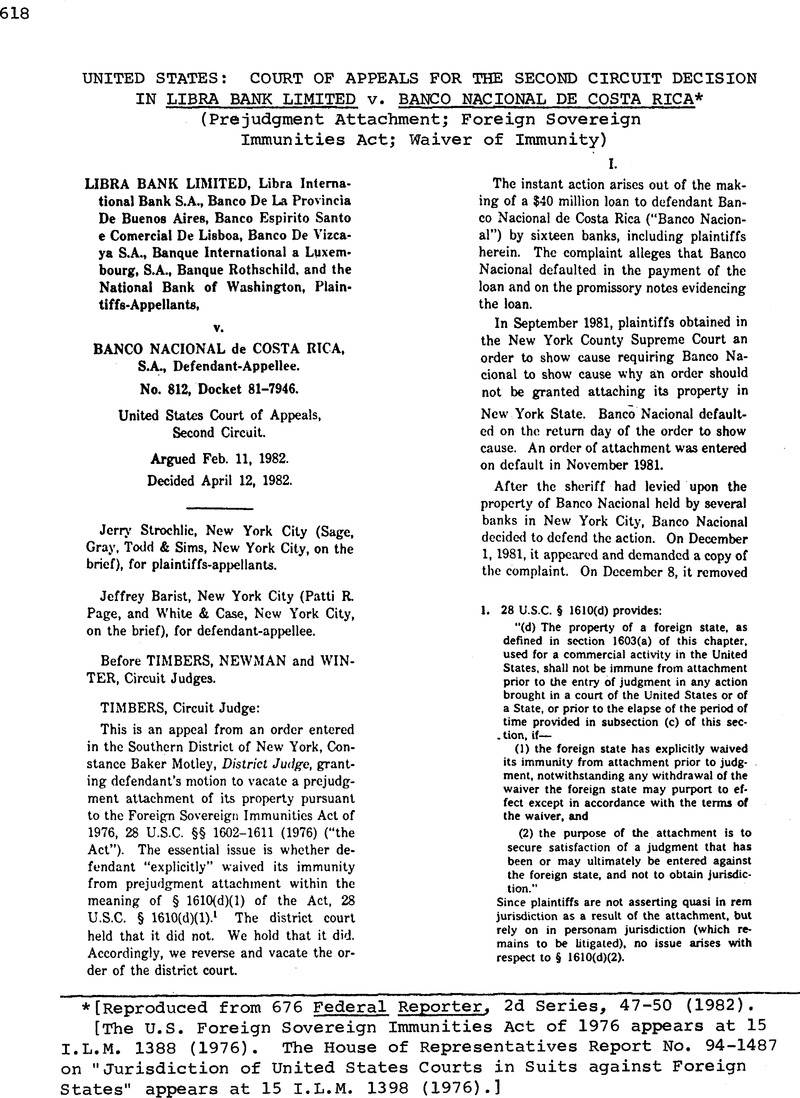No CrossRef data available.
Article contents
United States: Court of Appeals for the Second Circuit Decision in Libra Bank Limited V. Banco Nacional De Costa Rica (Prejudgment Attachment; Foreign Sovereign Immunities Act; Waiver of Immunity)*
Published online by Cambridge University Press: 20 March 2017
Abstract

- Type
- Judicial and Similar Proceedings
- Information
- Copyright
- Copyright © American Society of International Law 1982
Footnotes
[Reproduced from 676 Federal Reporter, 2d Series, 47-50 (1982).
[The U.S. Foreign Sovereign Immunities Act of 1976 appears at 15 I.L.M. 1388 (1976). The House of Representatives Report No. 94-1487 on “Jurisdiction of United States Courts in Suits against Foreign States” appears at 15 I.L.M. 1398 (1976).]
References
2 The district court deferred ruling on defendant's motion to dismiss for lack of in personam jurisdiction.
3 28 U.S.C. § 1610(a) provides in relevant part:
“(a) The property in the United States of a foreign state, as defined in section 1603(a) of this chapter, used for a commercial activity in the United States, shall not be immune from attachment in aid of execution or from execution, upon a judgment entered by a court of the United States or of a State after the effective date of this Act. if—
(1) the foreign state has waived its immunity from attachment in aid of execution or from execution either explicitly or by implication, notwithstanding any withdrawal of the waiver the foreign state may purport to effect except in accordance with the terms of the waiver...”
4 By contrast, the legislative history supplies examples of conduct that could constitute an unintended waiver “by implication” under § 1610(a)(1). See explanation of § 1605(a)(1), H.Rep.No.94-1487, 94th Cong., 2d Sess. 18, reprinted in [1976] U.S.Code Cong. & Ad.News 6604, 6617, expressly discussed as applicable to § 1610(a)(1), id. at 28, (1976] U.S.Code Cong. & Ad.News at 6627.




